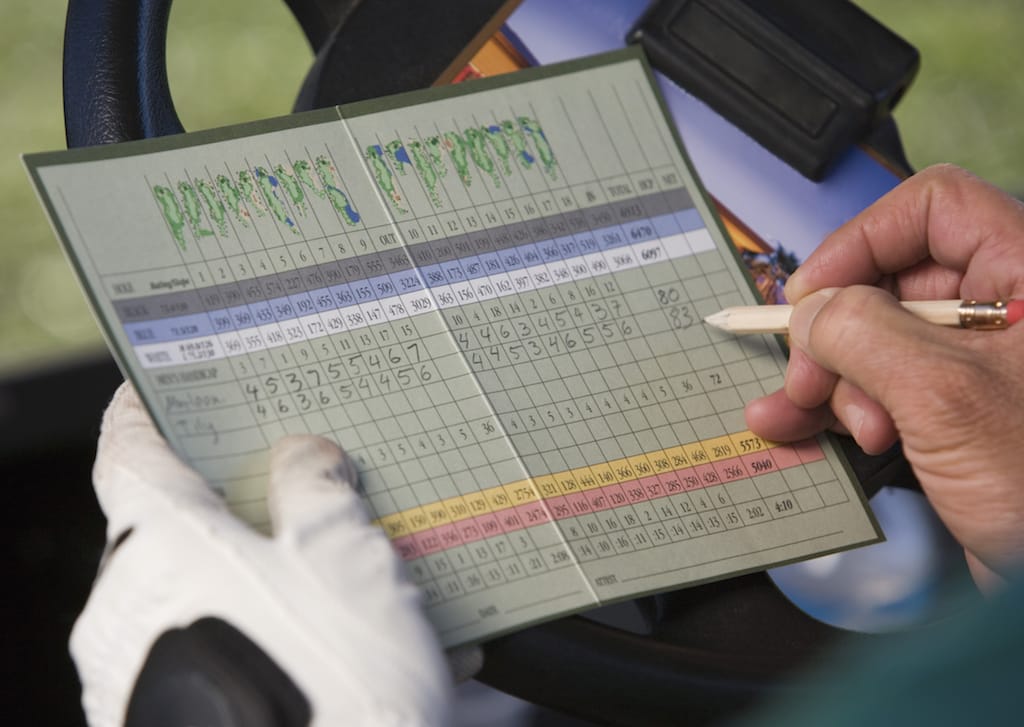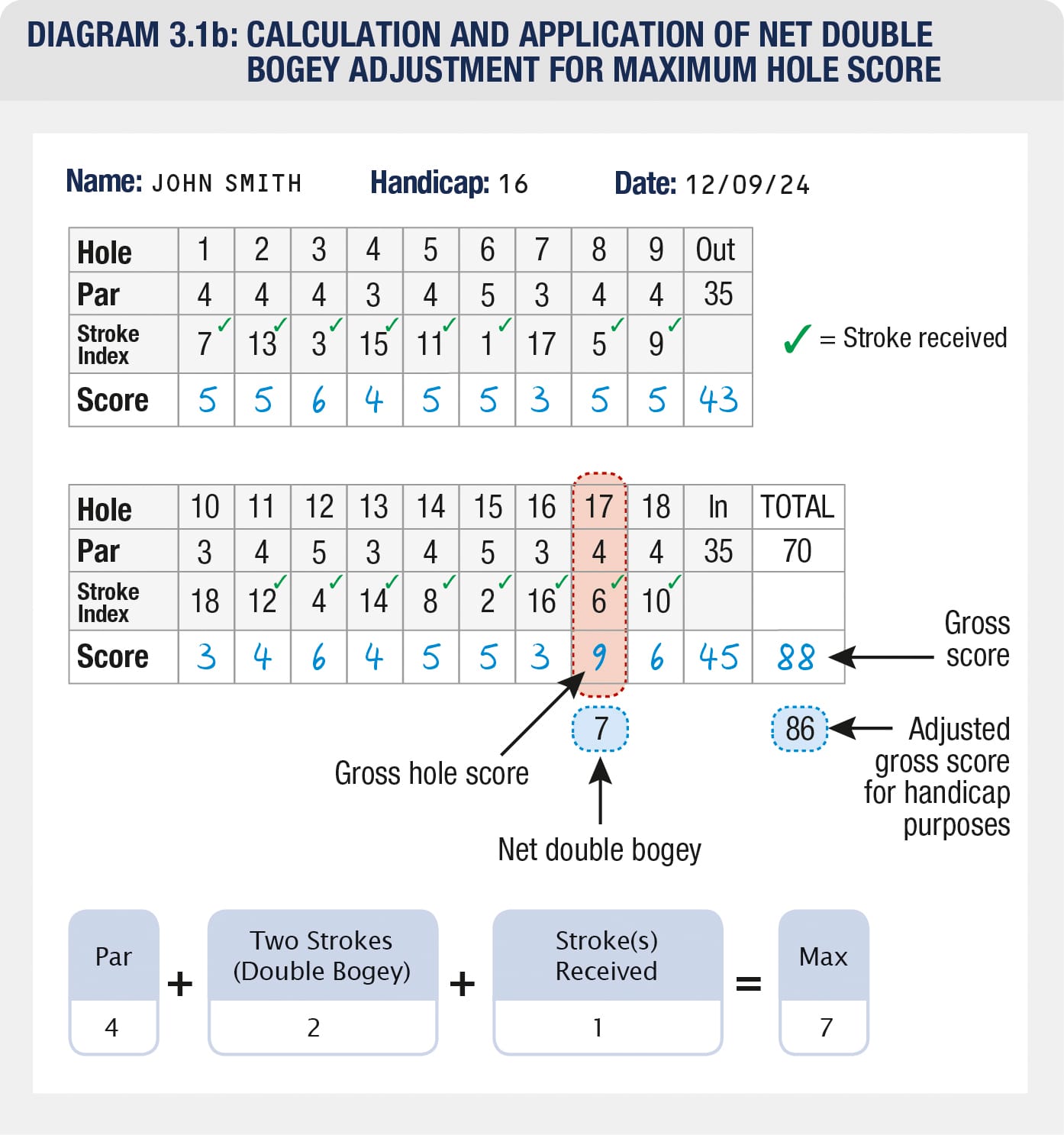What is a Good Golf Score? A Beginner's Guide to Understanding Golf Scoring

Introduction
Ever watched professional golfers on TV and wondered what all those numbers mean? Or maybe you've been thinking about taking up golf but feel intimidated by the scoring system? Don't worry – you're not alone! Let's break down what makes a good golf score and why understanding this can help you set realistic goals for your golf journey.
"The biggest thing about how to get better is to figure out what you're not good at. Most people don't like to do that. They'd rather practice the things they're good at." - Tiger Woods
The Basics: How Golf Scoring Works
Golf might be the only popular sport where the lowest score wins! Each hole on a golf course has a predetermined number of strokes (called "par") that a golfer should ideally take to complete the hole. When you hear someone say "par 4," that means a skilled golfer should be able to get their ball in the hole in 4 strokes.
"Golf is a game whose aim is to hit a very small ball into an even smaller hole, with weapons singularly ill-designed for the purpose." - Winston Churchill
For a typical 18-hole course, par usually falls between 70 and 72. But here's the thing – that's like saying a basketball player "should" make every free throw. In reality, your score depends greatly on your experience level.

What's Actually "Good"? Breaking Down Scores by Skill Level
Professional Golfers (The Masters of Their Craft)
- Score range: 65-75
- Years of experience: 10+ years
- Practice schedule: Often 40+ hours per week
- These are the scores you see on TV – don't use them as your benchmark!
Advanced Amateurs (The Local Club Champions)
- Score range: 75-85
- Years of experience: 5+ years
- Practice schedule: Regular practice and play
- These players often started young or invested significant time in lessons
Intermediate Players (The Weekend Warriors)
- Score range: 85-95
- Years of experience: 2-5 years
- Practice schedule: Weekly rounds and occasional practice
- This is a great target range for dedicated recreational golfers
Beginners (Welcome to the Game!)
- Score range: 95-120
- Years of experience: 0-2 years
- Practice schedule: Just getting started
- Focus on learning proper technique rather than scoring at this stage
A Golfer's Perspective on Scoring:
- 70s: "I should have gone pro!"
- 80s: "I'm pretty good at this game."
- 90s: "I'm getting better!"
- 100s: "At least I'm outside enjoying nature."
- 110+: "Did anyone see where that last ball went?"
"A bad attitude is worse than a bad swing." - Payne Stewart
Why Take Lessons? The Fast Track to Better Scores
Here's a secret that experienced golfers know well: taking lessons early in your golf journey can save you years of frustration. While it's possible to learn golf through trial and error, professional instruction helps you:
- Build proper fundamentals from the start
- Avoid developing bad habits that are hard to break
- Learn course management strategies that lower your scores
- Understand the mental game of golf
Our network of certified instructors specializes in working with golfers at every skill level. They can help you:
- Develop a personalized practice plan
- Set realistic scoring goals
- Master the basic techniques
- Progress faster than self-taught methods
Factors That Affect Your Score
Remember, many factors influence your score on any given day:
Course Difficulty
- Some courses are harder than others
- Course ratings and slope ratings help you compare different courses
- Weather conditions can make the same course play differently
"The most important shot in golf is the next one." - Ben Hogan
Your Equipment
- Properly fitted clubs can significantly impact your score
- Beginners should focus on forgiving clubs that help minimize mistakes
- Your instructor can recommend the right equipment for your skill level
Mental Game
- Golf is as much mental as physical
- Learning to manage pressure and stay focused
- Building confidence through proper practice
"The more I practice, the luckier I get." - Gary Player
Setting Realistic Goals
Rather than fixating on a specific number, focus on steady improvement:
- First Goal: Break 120 consistently
- Next Target: Break 100
- Intermediate Goal: Break 90
- Advanced Goal: Break 80
"Success in golf depends less on strength of body than upon strength of mind and character." - Arnold Palmer
Remember, every golfer was once a beginner. What matters most is enjoying the journey and seeing progress in your game.
Ready to Start Your Golf Journey?
Whether you're picking up clubs for the first time or looking to take your game to the next level, our network of professional instructors is here to help. They'll work with you to:
- Establish your current skill level
- Set appropriate scoring goals
- Develop a personalized improvement plan
- Make the game more enjoyable
Don't let scoring intimidate you – everyone starts somewhere, and with the right instruction, you'll be surprised how quickly you can improve. Book a lesson today and take the first step toward achieving your golf goals!
Looking for a golf instructor in your area? Use our golf lessons search tool to find certified professionals who specialize in working with players at your skill level. Your perfect golf journey begins with the right instructor!
